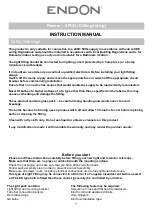
Security
myUTN User Manual Windows
93
6.7
How to Use Certificates Correctly
The UTN server has its own certificate management. This section
explains how certificates are used and when the use of certificates is
recommended.
What are
Certificates?
Certificates can be used in TCP/IP-based networks to encrypt data
and to authenticate communication partners. Certificates are elec-
tronic messages containing a key (public key) and a signature.
Benefits and
Purpose
The use of certificates allows for various security mechanisms. Use
certificates in your UTN server
• to check the identity of the UTN server in the network; see:
102.
• to authenticate the UTN server if the email communication is
protected (POP3/SMTP via SSL/TLS)
• to authenticate the UTN server/client if the data transfer
between the clients and the UTN server is encrypted via SSL/TLS
• to authenticate the UTN server/client if the administrative access
to the myUTN Control Center is protected via HTTPS (SSL/TLS).
If you use certificates, it is advisable to restrict the administrative
access to the myUTN Control Center so that the certificate on the
UTN server cannot be deleted by unauthorized persons; see:
Which Certificates
are Available?
Both self-signed and externally signed certificates can be used with
the UTN server. The following certificates can be distinguished:
• Upon delivery, a self-signed certificate (the so-called
default
certificate
) is stored in the UTN server. It is recommended that
you replace the default certificate by a self-signed certificate or
requested certificate as soon as possible.
•
Self-signed certificates
have a digital signature that has been
created by the UTN server.
• A
requested certificate
is created by a certification authority
(CA) for the UTN server on the basis of a certificate request.
















































